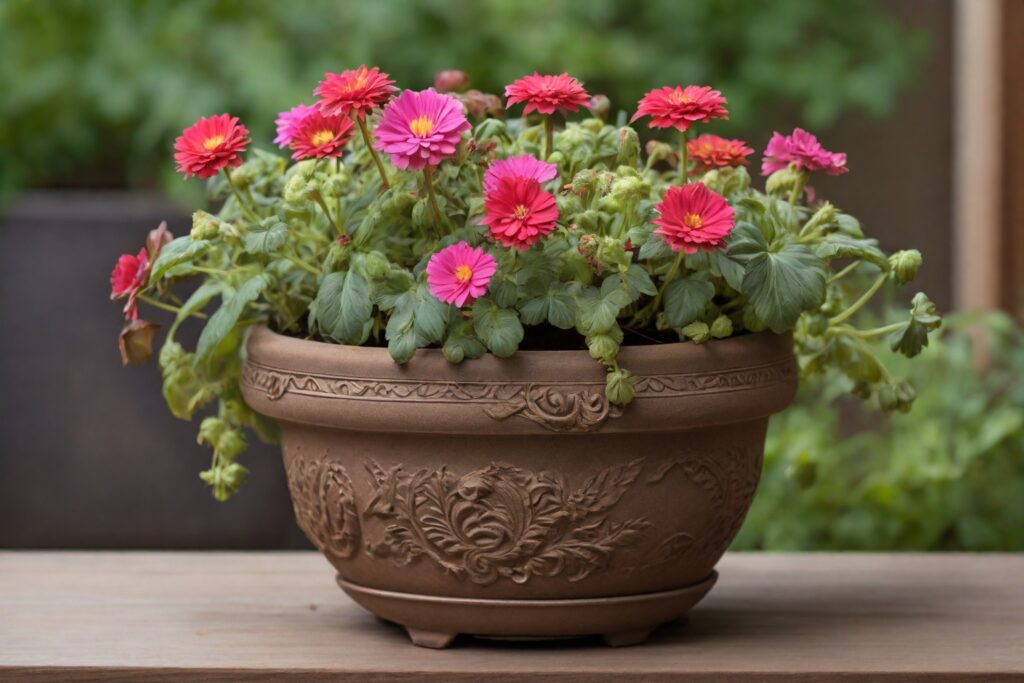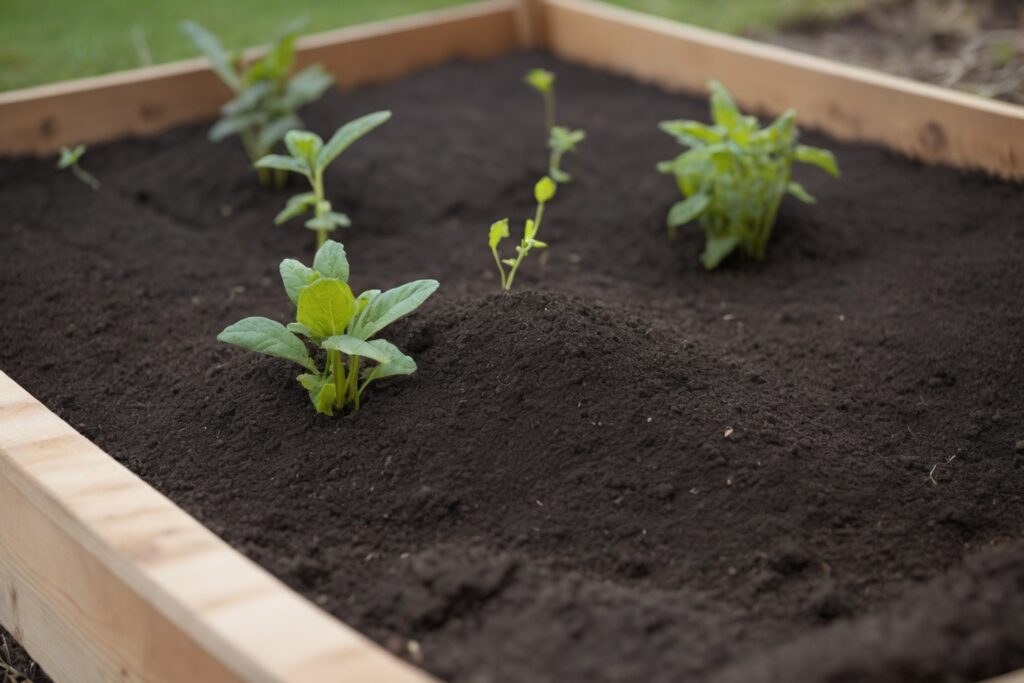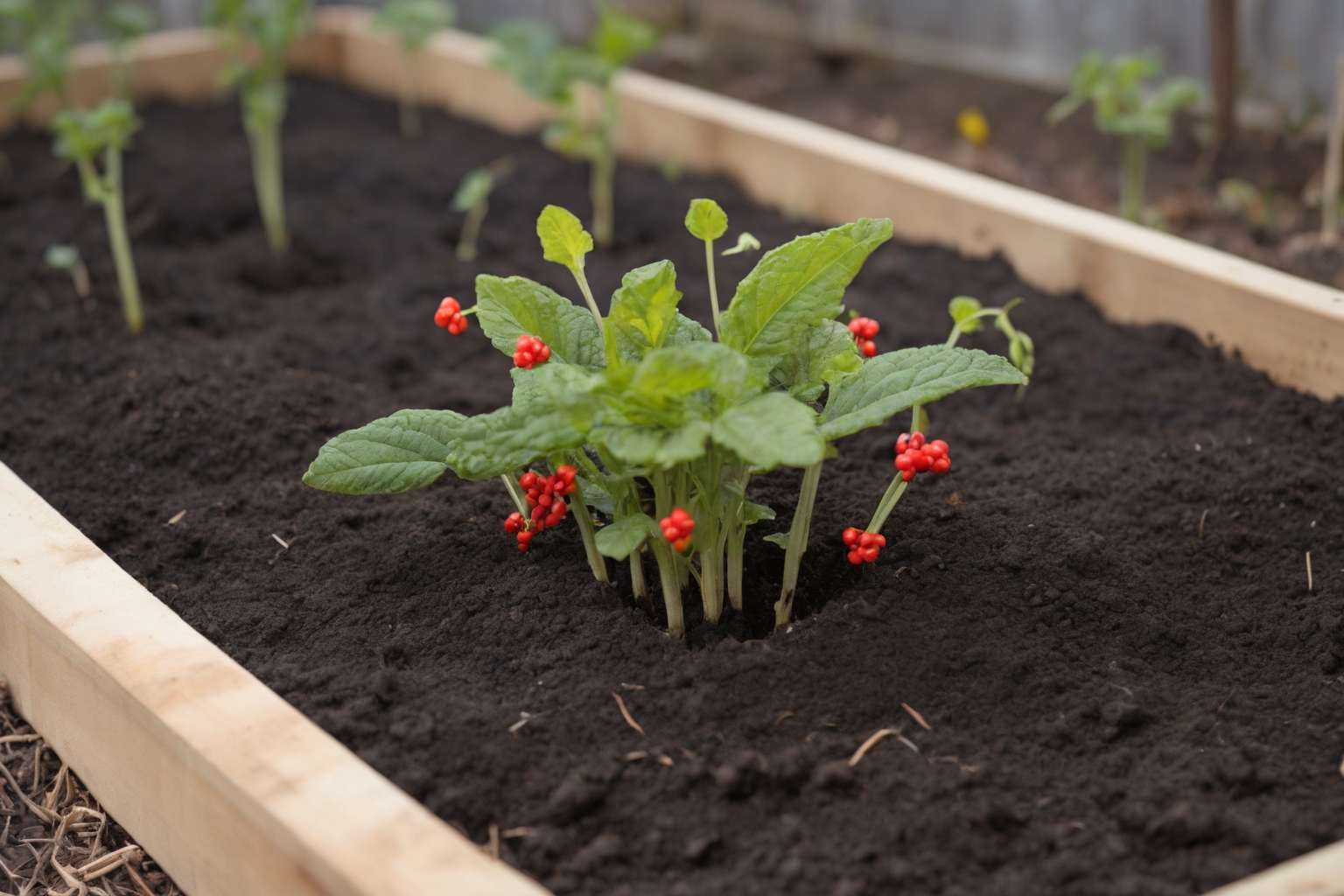Gardening allows individuals to connect with nature and create beautiful outdoor spaces. However, to ensure plants’ health and vitality, it is important to provide them with the necessary nutrients. One such nutrient source is 12-12-12 Fertilizer, widely used in gardening. This article will explore the basics of 12-12-12 Fertilizers, their benefits, how to choose the right Fertilizer for your plants, tips for application, and common mistakes to avoid.
Table of Contents
- Understanding the Basics of 12-12-12 Fertilizer
- Benefits of Using 12-12-12 Fertilizer for Your Garden
- How to Choose the Right 12-12-12 Fertilizer for Your Plants
- Tips for Applying 12-12-12 Fertilizer to Your Garden
- How Often Should You Use 12-12-12 Fertilizer on Your Plants?
- Common Mistakes to Avoid When Using 12-12-12 Fertilizer
- The Science Behind 12-12-12 Fertilizer and Plant Growth
- How to Measure the Effectiveness of 12-12-12 Fertilizer on Your Plants
- Alternatives to 12-12-12 Fertilizer for Your Garden
- Boost Your Garden’s Growth with 12-12-12 Fertilizer Today!
- FAQs
Understanding the Basics of 12-12-12 Fertilizer
12-12-12 Fertilizer is a type of balanced Fertilizer that contains equal amounts of three main nutrients: nitrogen (N), phosphorus (P), and potassium (K). Plants require certain nutrients for their growth and development. Leaf and stem growth is promoted by nitrogen, while phosphorus is helpful in the development of roots and flowering. Potassium, on the other hand, plays an important role in maintaining overall plant health and building resistance against diseases.
Plants require nitrogen as an essential nutrient because it performs a critical function in photosynthesis, which is the process that transforms sunlight into energy. It also helps produce chlorophyll, which gives plants their green color. Phosphorus is important for root development and helps plants establish strong root systems. It also aids in flower and fruit production. Potassium is involved in various physiological processes within plants, including water regulation, enzyme activation, and disease resistance. Here is a video from Yard Mastery explaining in detail this type of fertilizer.
Benefits of Using 12-12-12 Fertilizer for Your Garden
Using 12-12-12 Fertilizers in your garden can benefit your plants in numerous ways. First, it promotes improved plant growth and overall health. The balanced ratio of nutrients ensures that plants receive all the necessary elements to thrive, leading to stronger stems, lush foliage, and vibrant flowers.
Additionally, 12-12-12 Fertilizers can increase the yield and quality of fruits and vegetables. The nutrients in the fertilizer help plants produce more flowers, which in turn leads to a higher number of fruits or vegetables. The balanced nutrient ratio also ensures that the fruits and vegetables are of good quality, with better taste and texture.
Furthermore, 12-12-12 Fertilizers enhance root development. The phosphorus stimulates root growth, allowing plants to establish strong and healthy root systems. This is particularly important for young or newly transplanted plants, as it helps them establish themselves in their new environment.
Lastly, using 12-12-12 Fertilizers can improve plants’ resistance to pests and diseases. The balanced nutrient ratio helps strengthen plants’ overall health, making them less susceptible to attacks from pests and diseases. The potassium in the Fertilizer also plays a role in disease resistance, helping plants fight infections.
How to Choose the Right 12-12-12 Fertilizer for Your Plants

Several factors are important to consider when choosing a 12-12-12 fertilizer for your plants. First, you need to consider the type of plant you are fertilizing and its growth stage. Different plants have different nutrient requirements at different growth stages. For example, flowering plants may require more phosphorus during their blooming phase. At the same time, leafy greens may need more nitrogen for foliage development.
Understanding your soil’s pH level and any nutrient deficiencies is also important. Some plants prefer acidic soil, while others thrive in alkaline conditions. A soil test can help determine your soil’s pH level and any nutrient deficiencies. This information will guide you in choosing a fertilizer that addresses these needs.
Lastly, it is worth comparing different brands and formulations of 12-12-12 fertilizers. Some brands may offer additional micronutrients or organic additives that can benefit your plants. Reading product labels and researching customer reviews can help you make an informed decision.
Tips for Applying 12-12-12 Fertilizer to Your Garden
Applying 12-12-12 Fertilizers to your garden requires proper timing, dosage, and method. First, it is important to apply the Fertilizer at the right time. For most plants, this is in early spring before new growth begins. This allows the plants to absorb the nutrients and use them for healthy growth.
The Fertilizer dosage will depend on your plant’s specific needs and the instructions provided by the manufacturer. It is important to follow the recommended dosage to avoid over-fertilization, which can lead to nutrient imbalances and plant damage. On the other hand, under-fertilization can result in stunted growth and poor plant health.
When applying 12-12-12 Fertilizer, it is important to distribute it evenly around the plant’s base. To prevent any harm or injury, it is recommended not to apply the Fertilizer directly onto the leaves or stems. It is advisable to water the plants extensively after applying the Fertilizer, as this will aid in the dissolution and distribution of nutrients into the soil.
It is also important to take precautions when handling and storing fertilizers. Wear gloves and protective clothing when handling Fertilizer to avoid skin irritation. Store fertilizer in a cool, dry place away from children and pets.
How Often Should You Use 12-12-12 Fertilizer on Your Plants?

The frequency of using 12-12-12 Fertilizer on your plants will depend on several factors. First, consider the growth rate of your plants. Fast-growing plants may require more frequent fertilization compared to slow-growing ones. Additionally, consider the specific needs of your plants at different growth stages. Young or newly transplanted plants may benefit from more frequent fertilization to help them establish themselves.
Generally, most plants benefit from fertilization every 4-6 weeks during the growing season. However, it is important to monitor your plants’ health and growth and adjust the fertilization frequency accordingly. Over-fertilization can lead to nutrient imbalances and plant damage. At the same time, under-fertilization can result in poor growth and nutrient deficiencies.
Common Mistakes to Avoid When Using 12-12-12 Fertilizer
When using 12-12-12 Fertilizers, it is important to avoid common mistakes that can negatively impact plant health. One common mistake is over-fertilization. Applying too much Fertilizer can lead to nutrient imbalances, which can cause leaf burn, stunted growth, and even plant death. Following the recommended dosage and avoiding applying Fertilizer more frequently than necessary is important.
Conversely, under-fertilization can also have negative consequences. Plants that do not receive enough nutrients may exhibit stunted growth, yellowing leaves, and poor overall health. It is important to monitor the health of your plants and adjust the frequency and dosage of fertilizers accordingly.
Another mistake to avoid is incorrect application methods. Applying Fertilizer directly onto the leaves or stems of plants can cause burning or damage. It is important to distribute the Fertilizer evenly around the base of the plant and water it thoroughly.
The Science Behind 12-12-12 Fertilizer and Plant Growth
The three main nutrients in 12-12-12 Fertilizers are crucial in plant growth and development. Nitrogen is essential for photosynthesis, the process by which plants convert sunlight into energy. It also helps produce chlorophyll, which gives plants their green color. Phosphorus aids in root development and flowering. It is involved in energy transfer within plants. It helps produce ATP (adenosine triphosphate), which is the energy currency of cells. Potassium is involved in various physiological processes within plants, including water regulation, enzyme activation, and disease resistance.
In addition to the three main nutrients, 12-12-12 Fertilizers may contain micronutrients such as iron, manganese, zinc, and copper. These micronutrients are required in smaller quantities but are still essential for plant growth. They play a role in enzyme activation and other biochemical processes within plants.
Balanced fertilization is important for plant health and growth. Providing plants with the right balance of nutrients ensures they have all the necessary elements to thrive. Nutrient nutrient imbalance can lead to deficiencies or toxicities, negatively impacting plant health.
How to Measure the Effectiveness of 12-12-12 Fertilizer on Your Plants
There are several ways to measure the effectiveness of 12-12-12 Fertilizer on your plants. Firstly, you can observe the growth and overall health of your plants. Healthy plants should exhibit vigorous growth, lush foliage, and vibrant flowers or fruits. It may indicate a nutrient deficiency or imbalance if you notice stunted growth, yellowing leaves, or poor flowering.
Another way to measure the effectiveness of fertilizers is through soil testing. Soil testing can provide valuable information about the nutrient levels in your soil. By comparing nutrient levels before and after fertilizer application, you can determine if the Fertilizer effectively addresses any deficiencies.
Lastly, you can compare the yield and quality of your plants with and without fertilizer application. Fertilized plants should produce a higher yield of fruits or vegetables than unfertilized ones. Additionally, the quality of the produce should be better in terms of taste, texture, and appearance.
Alternatives to 12-12-12 Fertilizer for Your Garden
While 12-12-12 Fertilizer is widely used in gardening, alternative options are available for those who prefer different approaches. Organic fertilizers are one such alternative. These fertilizers are derived from natural sources such as compost, manure, and bone meal. They provide nutrients to plants in a slow-release form and improve soil health and fertility.
Homemade fertilizers are another option for gardeners. These can be made using household items such as coffee grounds, eggshells, and banana peels. While homemade fertilizers may not provide the same balanced nutrient ratio as commercial fertilizers, they can still provide some nutrients to plants.
Some other types of balanced fertilizers are:
Other synthetic fertilizers with different formulations are also available. Some may be specifically designed for certain types of plants or address specific nutrient deficiencies. Researching and choosing a fertilizer that best suits your gardening needs is important.
Boost Your Garden’s Growth with 12-12-12 Fertilizer Today!
In conclusion, 12-12-12 Fertilizersfertilizers are important for gardeners to promote healthy plant growth and maximize yields. The balanced nitrogen, phosphorus, and potassium ratio ensures that plants receive all the necessary nutrients to thrive. By choosing the right Fertilizer for your plants, applying it correctly, and avoiding common mistakes, you can enhance the health and vitality of your garden.
It is important to use fertilizers responsibly and effectively. Over-fertilization can lead to nutrient imbalances and plant damage. At the same time, under-fertilization can result in poor growth and nutrient deficiencies. By following proper application methods and monitoring the health of your plants, you can ensure that they receive the right amount of nutrients.
In addition to 12-12-12 Fertilizers, alternative options such as organic fertilizers and homemade fertilizers are available. These options provide different benefits and may be more suitable for certain gardening practices or preferences.
Overall, 12-12-12 Fertilizer is a valuable tool for gardeners looking to boost growth and maximize yields. You can create a thriving and beautiful garden by understanding the basics of fertilizers, choosing the right one for your plants, and applying it correctly.
If you’re looking for more information on fertilizers, you might be interested in our article on the benefits of 12 12 12 fertilizer. This versatile Fertilizer is a balanced blend of nitrogen, phosphorus, and potassium, making it suitable for various plants and gardens. Whether you’re growing vegetables, flowers, or even indoor plants, 12 12 12 fertilizer can help promote healthy growth and vibrant blooms. To learn more about this Fertilizer and how to use it effectively, check out our comprehensive guide to 12 12 12 fertilizer.
FAQs
What is 12 12 12 fertilizer?
12 12 12 fertilizer is a type of Fertilizer that contains equal parts of nitrogen, phosphorus, and potassium. It is also known as a balanced fertilizer.
What are the benefits of using 12 12 12 fertilizer?
Using 12-12-12 Fertilizers can help promote healthy plant growth, improve root development, and increase the yield of fruits and vegetables. It can also help improve soil fertility and nutrient content.
How do I apply 12 12 12 fertilizer?
The application rate of 12 12 12 fertilizer depends on the type of plant and the soil conditions. Generally, applying 1-2 pounds of Fertilizer per 100 square feet of soil is recommended. The Fertilizer can be broadcasted evenly over the soil surface or placed in the planting hole.
When should I apply 12 12 12 fertilizer?
12 12 12 fertilizer can be applied at any time during the growing season. Still, applying it before planting or early in the growing season is best. It can also be applied in the fall to help prepare the soil for the next growing season.
Is 12 12 12 fertilizer safe to use?
When used according to the instructions, 12 12 12 fertilizer is safe to use. However, wearing gloves and avoiding inhaling the dust when handling the Fertilizer is important. It should also be stored in a cool, dry place away from children and pets.
Relevant readings: Balanced use of plant nutrients.

